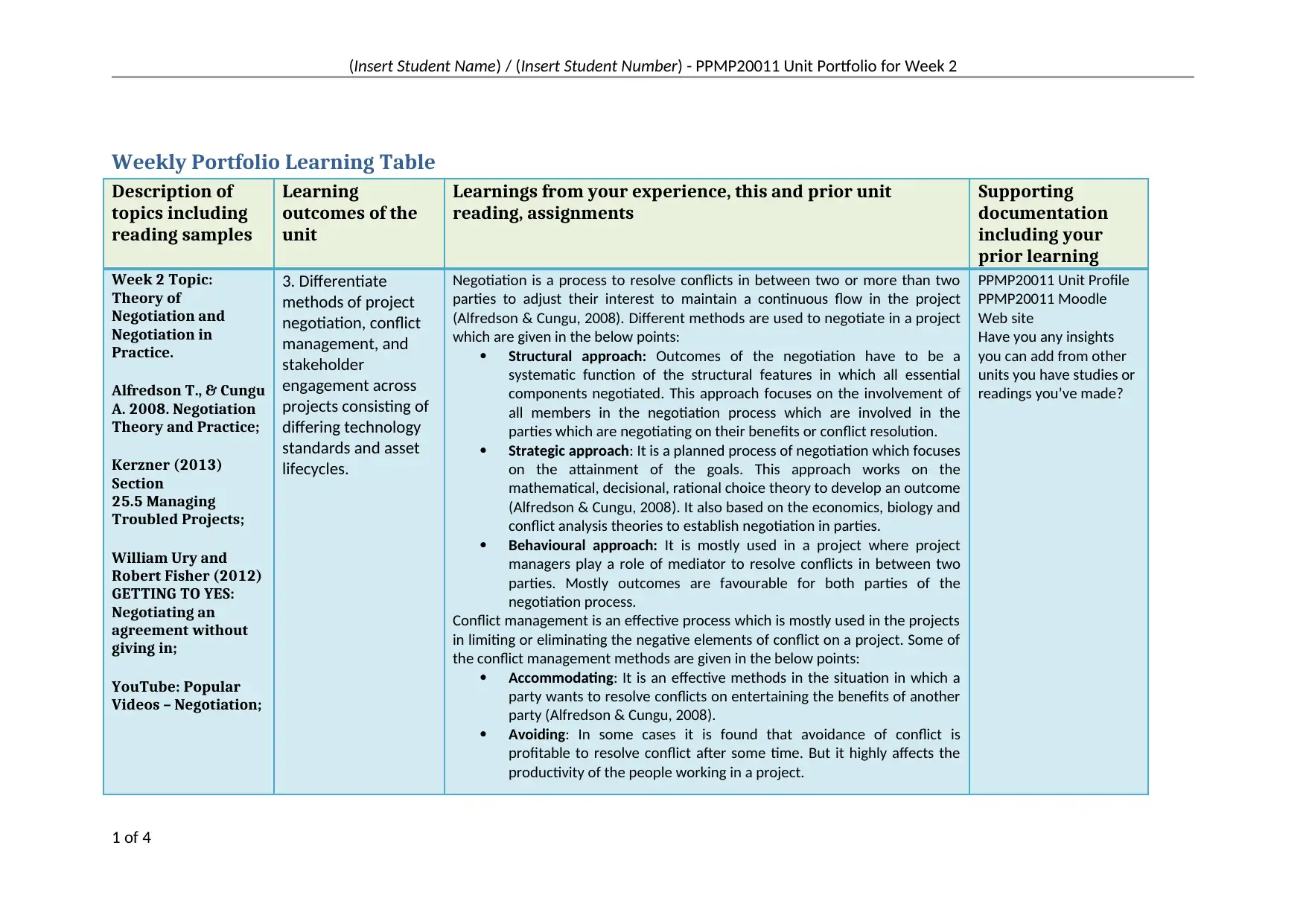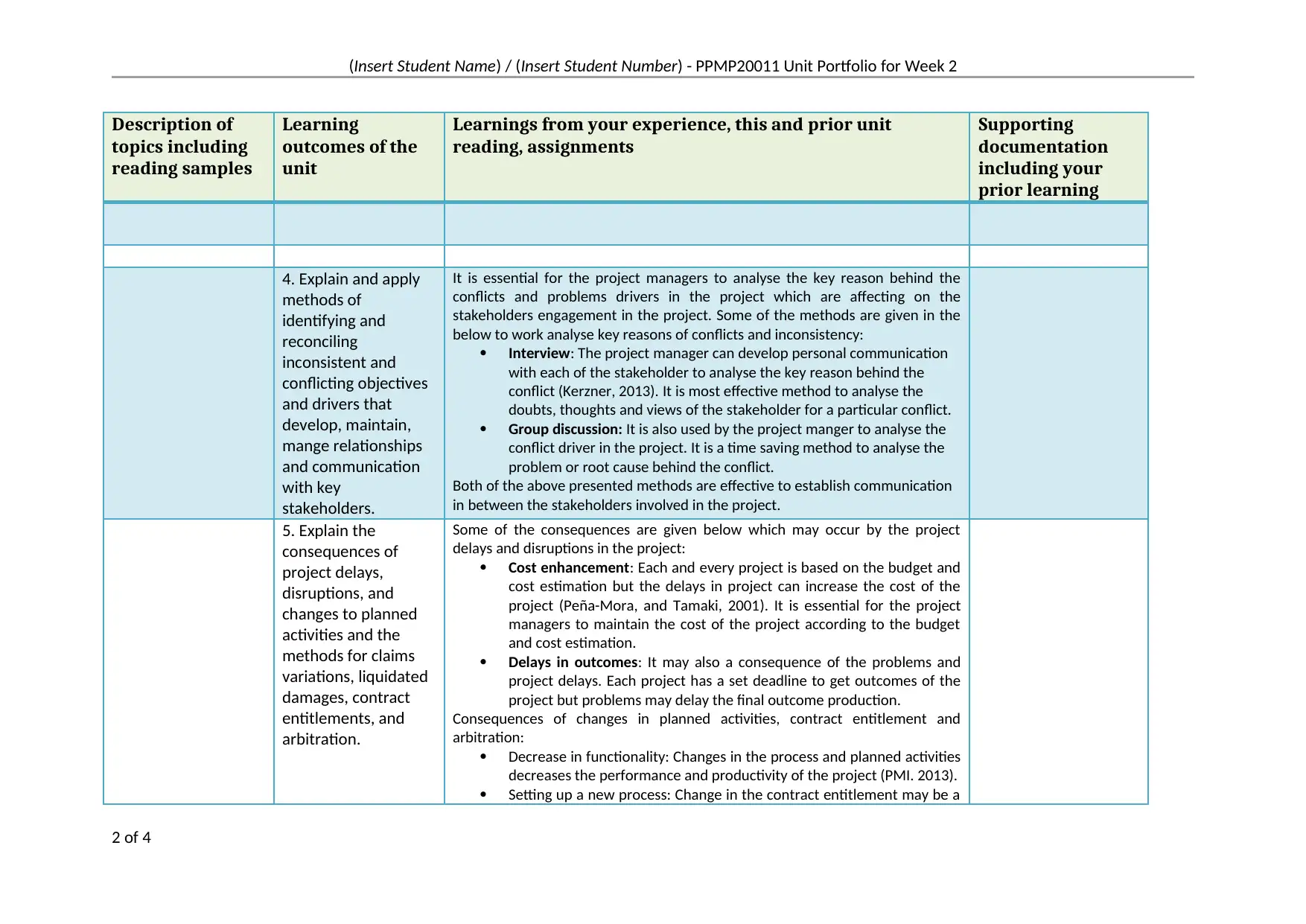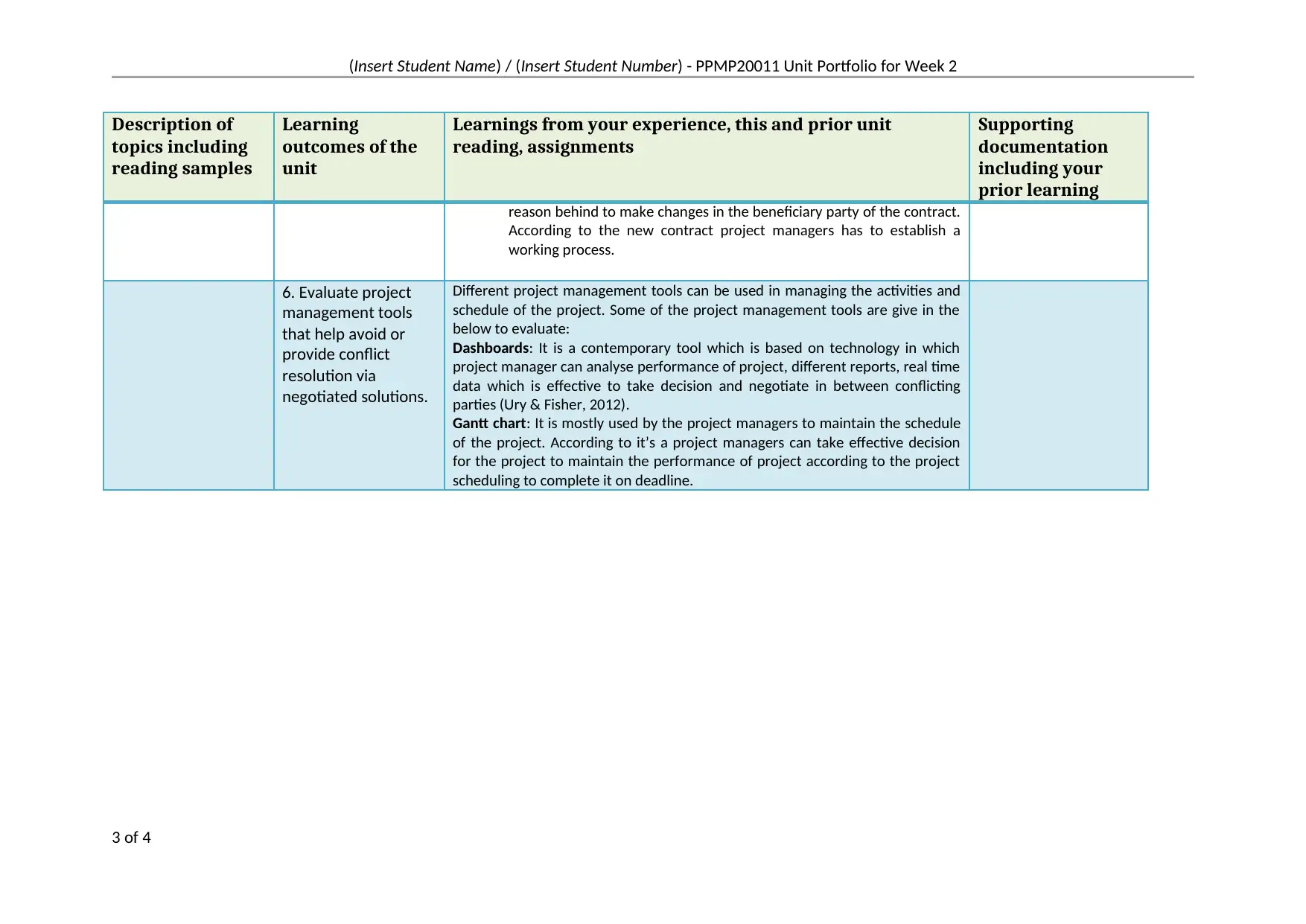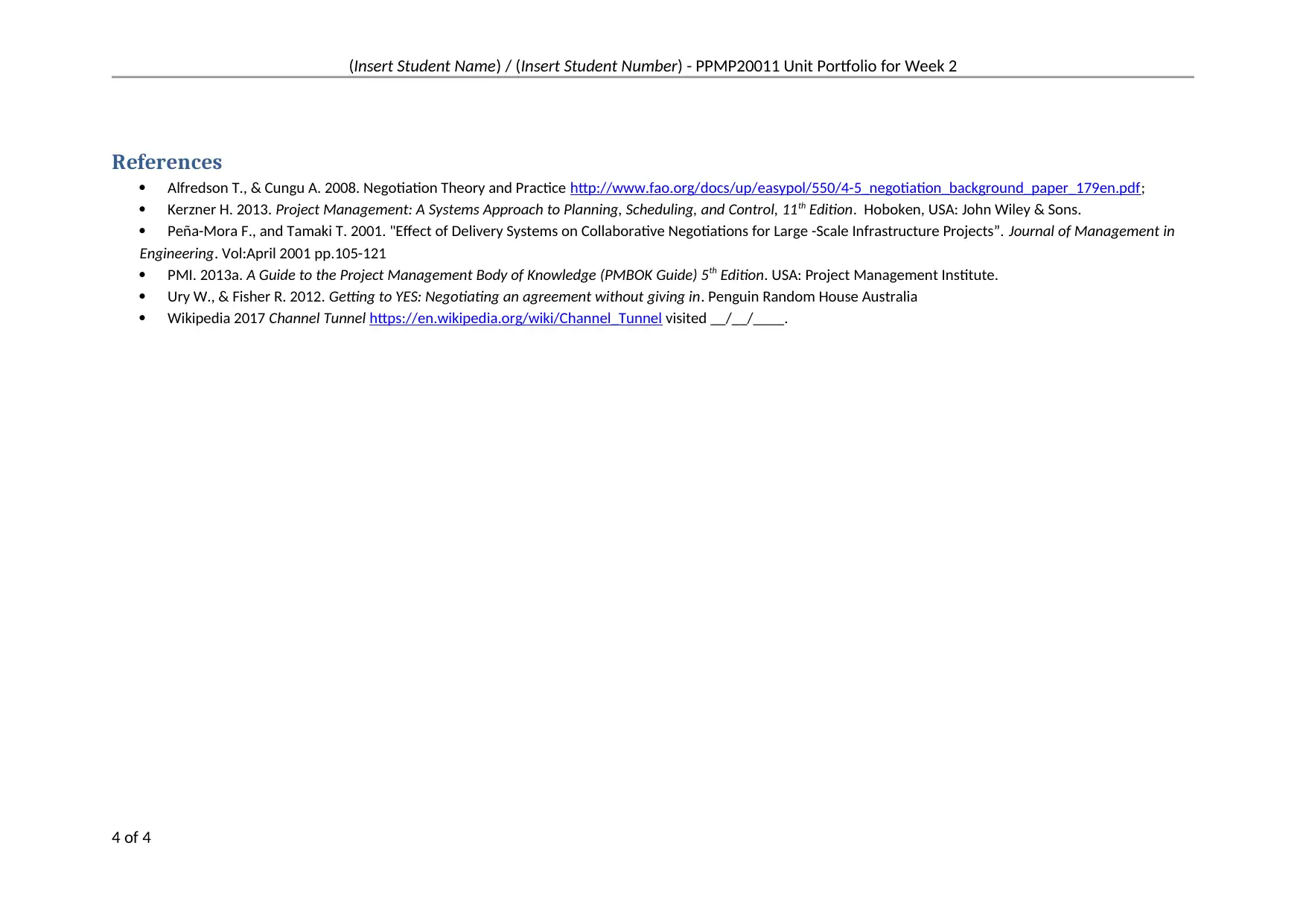PPMP20011 Unit Portfolio for Week 2 - (Insert Student Name) / (Insert Student Number)
VerifiedAdded on 2024/05/21
|4
|1318
|301
AI Summary
This portfolio explores the key concepts of negotiation theory and its practical application in project management. It delves into various negotiation methods, conflict management strategies, and stakeholder engagement techniques. The portfolio also examines the consequences of project delays, disruptions, and changes to planned activities, including methods for claims variations, liquidated damages, contract entitlements, and arbitration. Finally, it evaluates project management tools that aid in conflict resolution and negotiated solutions.
Contribute Materials
Your contribution can guide someone’s learning journey. Share your
documents today.
1 out of 4










![[object Object]](/_next/static/media/star-bottom.7253800d.svg)